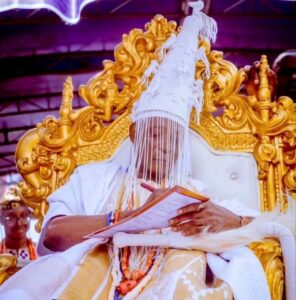FACT-CHECK: Does “Ọmọ Ibadan ti o jale, oju lo rọ” Mean Ibadan People Are Thieves?

The Claim
It is widely believed and often said in jest that the Yoruba phrase “Ọmọ Ibadan ti o jale, oju lo rọ” paints Ibadan people as thieves who endure punishment only after being caught.
The Verdict
Rating: MISLEADING
The phrase has been misinterpreted over time. Far from being an insult, it originated as a proverb praising the honesty and perseverance of an Ibadan man who chose not to steal in the face of hunger.
The Facts
Oral history traces the saying back to the time of the forefathers. The story goes that two men — one from Ibadan — were on a long journey. Weak with hunger, they saw food by the roadside.
The non-Ibadan man ate the food without permission.
The Ibadan man refused, saying it would be stealing, and advised patience until they could find the owner or get to the village.
When the owner and villagers arrived, they condemned the thief but praised the Ibadan man for restraint and integrity.
They then asked rhetorically:
“Ọmọ Ibadan ti o jale, oju lo rọ?”
(“See how the Ibadan man persevered rather than steal?”)
This was originally a tribute to honesty — not a slur.
ALSO READ:
ÌJÀKADÌ L’ORÒ Ọ̀FÀ THE BATTLE FOR AKỌGUN || PART 1

How It Got Twisted
Over time, the context was lost. Today, some people wrongly use it as a mocking phrase to suggest Ibadan people are prone to theft.
Context Matters
Ibadan has a rich history of bravery and resilience. As locals proudly say:
If you say “Ìjà ìgbòro l’arun Ibadan” (street fights are Ibadan’s ailment), that reflects our warrior heritage. But branding us with theft is a distortion of history.
Conclusion
The claim that “Ọmọ Ibadan ti o jale, oju lo rọ” labels Ibadan people as thieves is false. The proverb, in its true meaning, celebrates perseverance, integrity, and self-control— virtues that Ibadan people hold dear.
ALSO READ:
Rivers Crisis: Tinubu Rejects Extension Plot, Orders Ibas to Handover as Emergency Rule Winds Down
NCDC Issues Nationwide Advisory Over Recent Ebola Reports
Niger State Bans Religious Preaching, Introduces Licence Requirement for Preachers








